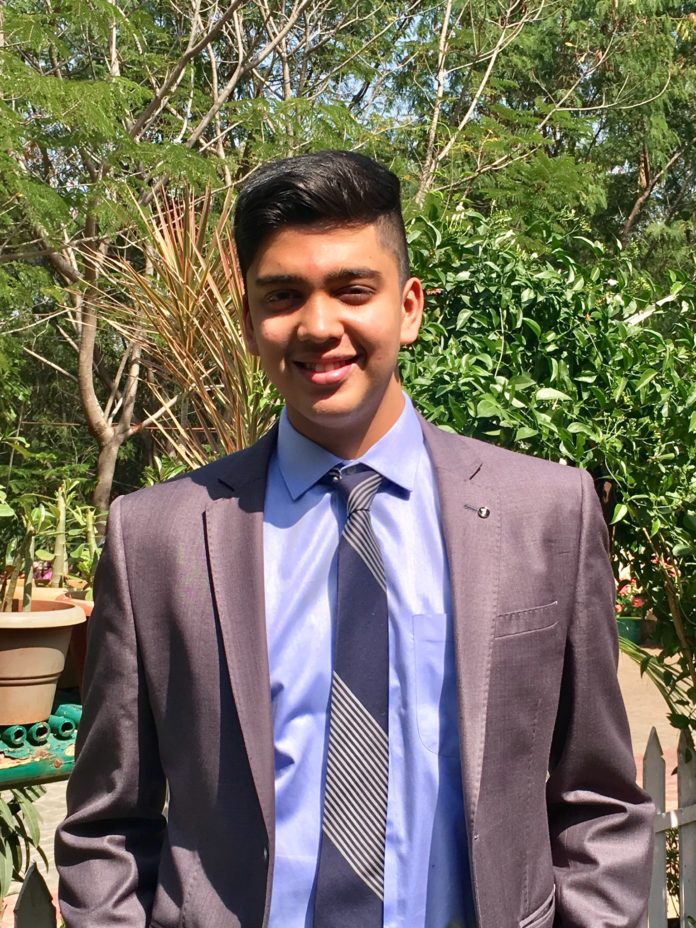Tavashya Kumar is a first year student of National Law University, Delhi.
CLAT and AILET are the two premier law entrance exams in India and it is the dream of every candidate, aspiring to join the top law schools in the country, to be able to crack either (or both) of these exams. I was one such candidate. Two years ago, when I started my preparation for these entrance tests, I too dreamt of getting an under 100 rank in them, of walking through the halls of the hallowed National Law Universities as a student of the noble profession of law. With this in mind, I started my preparation with great zeal and enthusiasm.

A month into my preparation, I gave my first mock test. It was a CLAT mock and I scored 132.75. I was absolutely ecstatic and euphoric! I was literally on Cloud Nine! I was all shades of happy and more! I was thrilled to see that my preparation was on track. With these happy thoughts in mind, I gave an AILET mock a couple of days later. I was very excited when I finished the mock, believing that I would be able to replicate my performance. When I looked at the monitor, the score on display was (and I kid you not) – 52.75/150! My entire world came crashing down! For the first few moments, I was simply stupefied. Then came the disbelief, as I reloaded the webpage a couple of times, praying for a miracle and this was followed by the horror of realizing how bad I had actually performed. And finally, I was seized by the terror of replicating this awfulness in the actual exam. It hit me like a truck despite having gotten a score of 130 on my first CLAT mock. Even more disheartening was my rank among the other test takers. In the CLAT mock, I was rank 12. In the AILET mock, I was rank 106.
I was extremely disheartened but somehow I managed to pull myself together and made myself believe that it was a one-off thing. Only, it wasn’t! It became a pattern – I gave a CLAT mock which went well and then an AILET mock, which was inevitably horrendous. It went to the extent that, by the time I entered 12th grade, I had stopped giving AILET mocks. I just couldn’t bring myself to face the disappointment. It was then that I got the most valuable piece of advice; advice that probably changed the course of my law prep and was pivotal in my success in AILET.
It is this advice that I want to share with all of you. I’m going repeat it as I got it, verbatim – CLAT and AILET are not the same! Simple as that! They are not the same exam and hence, a one size fits all approach cannot be taken with regards to the preparation. Sure, they are similar in terms of the syllabus, time to be allotted per question and level of competition. But they vary in the difficulty level, length of questions, type of questions and the sources they are taken from. AILET is a much tougher nut to crack when these factors are taken into account.
Moreover, unlike CLAT, AILET is an unpredictable examination. It throws up a new surprise every year which stumps everyone. For example, in AILET 2019, the GK section had questions patterned on questions in the UPSC examination. Moreover, contrary to the general expectation, there were 12 questions from sentence correction and not a single parajumble-based question. Combine this with a mammoth legal reasoning section and it is no wonder why the cut-offs have dropped to 70 marks (roughly 45%).
Now, I know reading this must’ve made you dizzy and nervous; so, let me make this easier for you by providing you with a different perspective. Ever since negative marking was introduced in AILET 2018, the cutoffs have dropped to 70/150, give or take. This means that, in order to clear the exam, all you need is 70-ish marks. That translates to 17-18/35 in English, GK, Legal and Logical Reasoning sections and only 2-3/10 in the section on Mathematics. Doesn’t sound as daunting a prospect now, does it?
There is another difference between AILET and CLAT – the relative importance of attempts and accuracy. In CLAT, it is a “must attempt at least 160-170 questions” in order to secure a seat in top NLUs. However, in my opinion, AILET is more about accuracy than it is about attempts. In AILET, the question paper is so tough that a very high number of attempts will inevitably fetch more wrong answers and cost more marks in terms of negative marking. It could be calamitous to rely on a high number of attempts to cover for a low level of accuracy. Thus, selecting which question to attempt and which one to leave can make a world of difference to your prospects.
Also, an over reliance on one or two ‘strong’ subjects could sound the death knell for your prospects. Given the unpredictability of the examination, it is entirely possible that AILET will throw you a curveball in the subject you are strong in, thereby negating whatever advantage you may have (had) over others. Alternatively, the subjects you are ‘weak’ in, such as Mathematics (for most aspirants, including yours truly), might end up being the easiest section in the exam, in which case you will lose out on a few easy marks, which you could have scored if you had given it some time and work. Thus, it is fruitless, if not detrimental, to approach the exam with a pre-conceived notion that your expertise in one subject will be able to make up for your weakness in others. Instead, it would be a far better strategy to just have moderate to good knowledge of all topics, and any strength would thereafter be a bonus.
As you can see, it’s all a matter of perception. You can either allow yourself to be bogged down by the lengthy, extremely difficult and time consuming paper where it seems impossible to score more than 90 marks in the easiest of papers and it becomes difficult to score even a basic 60 on a standard paper. Or, you can look at the positive side of it: realize that all you need is to get a score of 70 or so and work on getting there.
I would like to conclude with a warning – Don’t rely too much on advice. There is no one correct way to approach a law entrance test. What worked for me may not work for others and vice versa. As an aspiring candidate, the biggest mistake you can make is blindly following advice you find on the internet. If you do that, you will end up with tons of books, a multitude of law prep websites and subscriptions to a potpourri of coaching institutes. You will be overwhelmed by the colossal magnitude of prep material placed before you, perplexed about what to study and what not to study. It will become extremely difficult to claw your way back from that quagmire. Hence, it is important to read whatever you find on the internet, critically analyze it and then, imbibe whatever you feel is pertinent. To aid this process, find yourself a mentor – it can either be a senior from school, or from coaching class or a teacher, or just about anyone who has knowledge and experience in the field of law entrance preparation. It is always good to take a second opinion, maybe even a third, but be mindful of the old saying, too many cooks spoil the broth!
Best of luck and Godspeed!
Please leave a comment below in case you have further any queries with regards to preparation. In case you are desperately in need of a Personalized Action Plan, please read this.
















Awesome article, Tavashya…learnt a new word today…Calamitous. God bless !
Beautifully penned the dilemma of preparation for a competitive exam
Wonderful advise
From where did u get these mock test?
Hello! I am a student of class 11th.. and I am aspiring to give the clat exam after my 12th gets over. So how do I prepare myself..
Too precise and beneficial!
Thank you
Did you took any Coaching for exam?
Hello ! Tavashya . I wish you had posted this sooner. You’ve provided some good advice above but alas i won’t completely rely on it . I did grasp few hints in order to prepare but there’s this huge hitch , I am a science student ( unfortunately) and i want to score good in my 12th grade but seemingly the syllabus is way too lengthy. Would coaching for a month suffice in order to seal a spot at the top nlu’s merely NLU DELHI . I express my gratitude and i hope you reply asap.
Hello! Having just one month’s worth of prep may prove inadequate, in my opinion…so I suggest you keep setting aside time during the course of the year for your preparation.
almost all CLAT/AILET toppers start their prep from 11th only